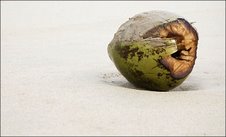I've noticed since young, that many of the 'smart kids' that do not seem to study, but have superior academic skills, spend much of their time playing. Kids that grew up playing video games are smart, those that play with a lot of hands on things, build their own toys etc are usually creative, and those that do alot of role play, imaginative plays when they are young have great ideas growing up. Forget about what playful play and productive play, play has not meant to be productive in the sense that we defined productivity; only then, we're true to our playing. Kids need to play, kite, tops, marbles, throw stones in the streams, go waterfall, pick up shells, hide-and-seek, spraying the garden hose, etc. Not drag-n-drop, not superior mathematical theorerms, nor scoring in MENSA tests. Those are the products of play, i would think.
---------------------
The Merits of Play
Play is not just about having fun, it is serious business.
Research has shown that play - particularly unstructured, spontaneous games vs. scheduled activities like music lessons and football practice - is a powerful force in human development. Play experts such as Stuart L. Brown, founder of the Institute of Play, early childhood professor and author Vivian Gussin Paley, and Yale research scientist Dorothy G. Singer believe that spontaneous play and fantasy play help children learn about the world, cope with life's pressures, and process negative emotions such as fear, anger, even worry. They have found that role-playing prepares us for real-life situations, allowing us to practice, for example, making decisions under pressure, leading a group, or thinking abstractly. Group play teaches us to socialize and to cooperate. Play also gives us a chance to better know ourselves through self-evaluation and self-reflection, which are critical development tools according to Robert Heffer, a clinical psychologist with Texas A&M University. Play also encourages creativity. Says Edgar Klugman, Ed. D. and author of Play, Policy and Practice, "Good make-believers are often better at imagining things," and a good imagination is hardly reserved for childhood.
Research has also identified two types of play: Playful play and productive play. Playful play is doing an activity for the pure joy of doing it, such as skipping rocks on a pond, rolling down a hill until you are dizzy and giddy, or playing air guitar. Jeri Robinson, vice president of early childhood programs at the Boston Children's Museum, defines playful play as "exertion without serious consequence."
Productive play has consequences, a specific outcome, and goals other than pure pleasure. It has a specific purpose, such as producing a tangible thing, like a new and better widget, or playing tennis to win a tournament versus just for fun. Although both types of play teach us valuable skills, productive play is the type we can easily weave into our work. (Blurring the Lines By Kevin Carroll )
"Work and play are words used for the same thing under differing conditions." - Mark Twain
Subscribe to:
Post Comments (Atom)

No comments:
Post a Comment